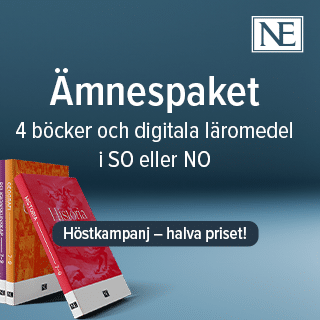Smak för hållbar mat? Undervisning för hållbar matkonsumtion i hem- och konsumentkunskap
Hur konstrueras innehållet i hållbar matkonsumtion i hem- och konsumentkunskapsläroböcker? Det är en av frågorna som Lolita Gelinder undersöker i sin avhandling om undervisning för hållbar matkonsumtion i hem- och konsumentkunskap.
Lolita Gelinder
Karin Hjälmeskog Malena Lidar
Professor Päivi Palojoki, University of Helsinki
Uppsala universitet
2020-05-20
Smak för hållbar mat? Undervisning för hållbar matkonsumtion i hem- och konsumentkunskap
Abstract in English
The overall aim of this thesis is to contribute knowledge about teaching and learning for sustainable food consumption in the Swedish school subject Home and consumer studies. Four research questions have guided this investigation: I. How is the content of sustainable food consumption constructed in Home and consumer studies textbooks from 1962 to 2011? II. How do students make choices when foodworking in Home and consumer studies, and how does it affect their meaning making for sustainable food consumption? III. How do teachers and students make meaning of taste in their foodwork in Home and consumer studies? IV. What are the didactic implications of the sub-studies in terms of teaching for sustainable food consumption? The four research questions are addressed in three studies: one textbook study (paper I) and two case studies where the empirical data is constructed through video observations of students in Year Nine classrooms working with food. The thesis has a theoretical basis in curriculum studies, and the didactical triangle that represents the mutual relationship between content, teacher and student serves as a model to understand the complexity of teaching. Also, a transactional approach to meaning making and taste are used. The findings show that content for sustainable food consumption can be understood through the lens of different discourses that construct three ideal food consumers, and depending on the discourse used, the students are educated differently. However, all discourses focus on health and contain an idea of instrumental rationality. The findings also show that taste is the factor that has the greatest influence on the students’ choices during their foodwork. Furthermore, in the teacher’s and students’ conversations, meaning is made through taste assessments or texture. Moreover, the results show challenges in education for sustainable food consumption concerning the continuity of teaching and normativity in teaching. These challenges are discussed in terms of didactic implications in order to strengthen and develop teaching for sustainable food consumption in Home and consumer studies. Progress in this area may involve raising the democratic mission of education by making teaching more pluralistic. Another way forward could involve putting aside the traditional task of preparing a complete meal and, instead, working on the process through more exploratory tasks. The sensory aspects of food is also a possible starting point for teaching sustainable food consumption, and a transactional perspective on taste can be a tool to bring this into the classroom.
Relaterade länkar

Fritidshem
 Åk F–6
Åk F–6 Matematikångest
 Åk 4–Vux
Åk 4–Vux 






